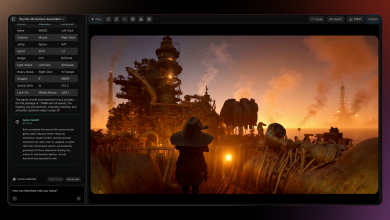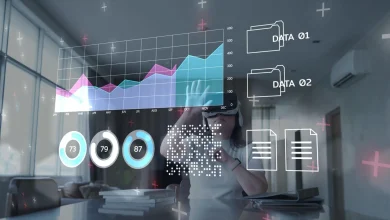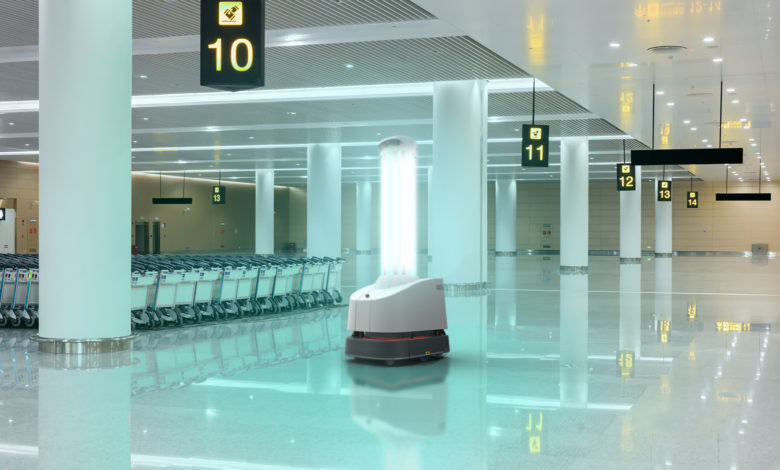
The recent global pandemic has sparked interest in companies finding a solution for the efficient elimination of pathogens. Amongst these companies are the disinfection robot provider UVD Robots who explain it has been experiencing increasing demands for the distribution of its robots in more than 60 countries worldwide in a recent company press release.
Per Juul Nielsen, CEO of UVD Robots commented on what makes its robots different by saying: “We have designed the world’s most advanced UV robot, which is also the world’s simplest to use. Anyone can install the robot in a matter of minutes and immediately put it into operation, disinfecting bacteria and viruses from the air and any surface.”
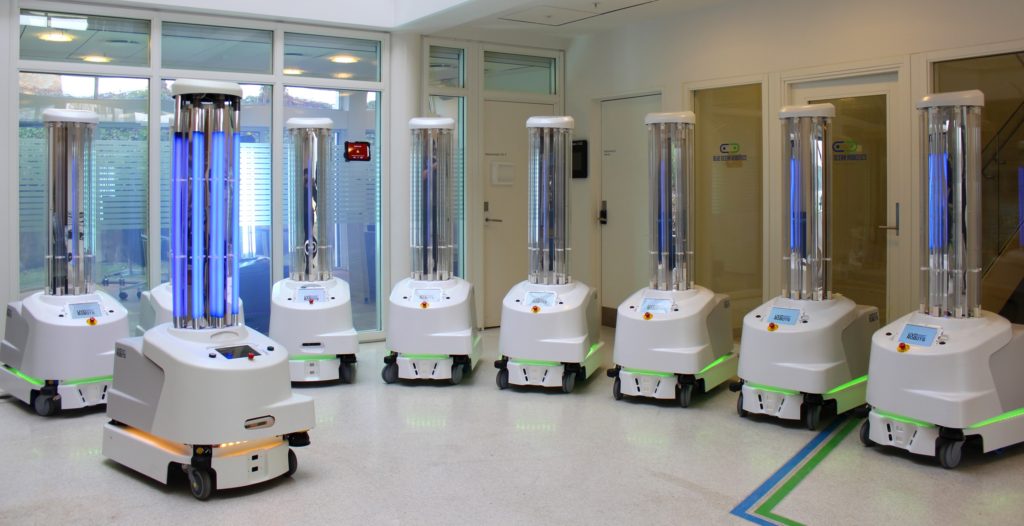
The disinfection robot provider writes in the announcement that the sales for its products have been increasing since the beginning of 2020 with the UVD robots becoming progressively more in demand.
The company explains that the increased purchase demand is coming from areas that include; hospitals, airports, hotels, shopping malls, food companies, cleaning industries, cruise ships, pharmaceutical companies, and other offices that require the elimination of possible infection.
The disinfection robot provider is not the only robotics business supporting the healthcare sector with Robotic Assistance Devices announcing its first health screening device order back in July.
UVD Robots claim their robots kill 99.9% of pathogens within 10 minutes and is 100% autonomous. The robot is used to disinfect rooms and surfaces within its proximity by using its UV light bulbs that emit high-output concentrated UV-C (ultraviolet light) capable of destroying the DNA and RNA of a pathogen. The UV robot is safe, reliable, and eliminates human error when cleaning. Furthermore, it is worker friendly and is designed to be operated by every-day cleaning staff making it simple to operate.
The UV robot has been widely used around the world and in regular hospitals and has been deemed to be effective in eliminating pathogens. However, exposure to UV lights can be hazardous to humans. To solve this potential issue, UVD Robots created a tablet that is placed on the door of the patient room which acts as a motion sensor. This means it automatically disengages the UV-C light if someone wants to enter the room allowing the UV robot to be safely used after working hours or when workers are elsewhere.
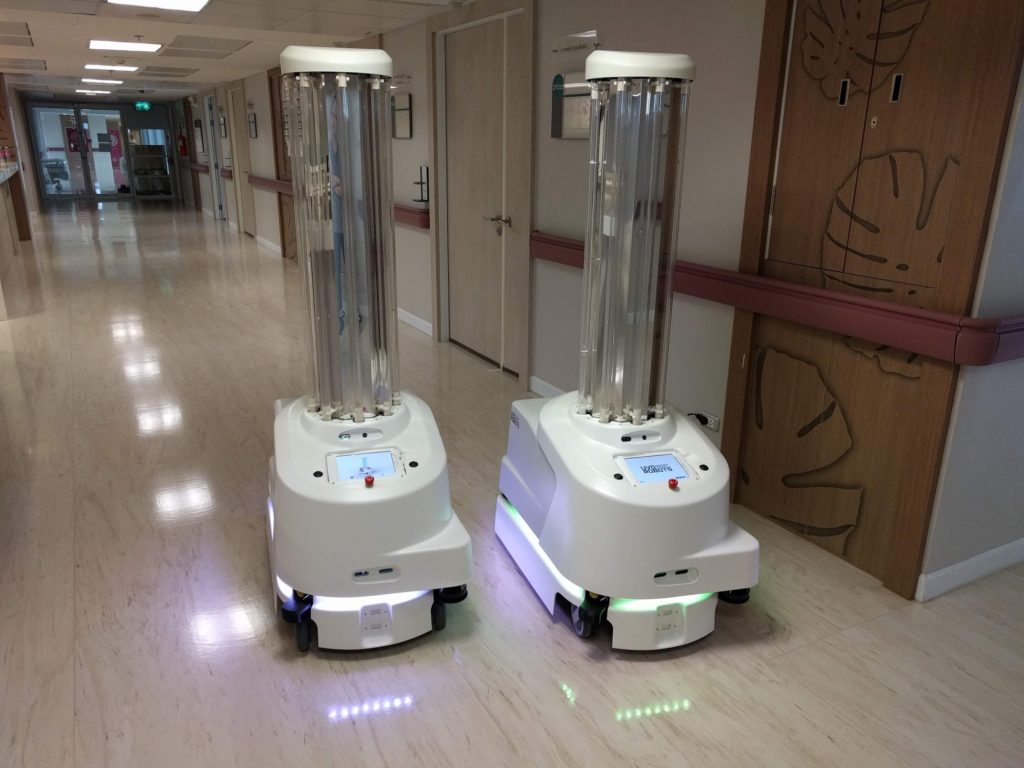
Due to the current climate, production for the robots has been accelerated and it now takes less than a day to make one robot at their facility in Odense, Denmark. The UVD Robot has already been a success and won the 15th Innovation and Entrepreneurship Award in Robotics and Automation (IERA) in 2019.
“We are incredibly proud of winning the IERA Award 2019 for a ground-breaking product,” said Claus Risager, CEO of Blue Ocean Robotics. “Everyone can feel safe in rooms that have been disinfected by the robot. Our UVD Robot not only reduces the risk of patients contracting hospital-related infections but also to a high extent visitors and hospital staff.”
The Danish company, Blue Ocean Robotics, specialises in professional service robots with its disinfection robot subsidiary, UVD Robots, recently being nominated for the SDG Tech Award and for the People’s Choice Award, for their UV disinfection robots. It is clear this company is being positively acknowledged by others and has potential in the future.
The disinfection robot provider has been promoting its UV robot as something that should be used alongside regular cleaning cycles. This is to lower the risk of patients dying due to infections acquired during hospitalisation. However, since the Coronavirus, the companies products have increased in popularity.
This gives the business potential to expand from its initial solution of helping to lower hospital transmission rates and venture out into helping other working sectors to help decrease transmission rates.

